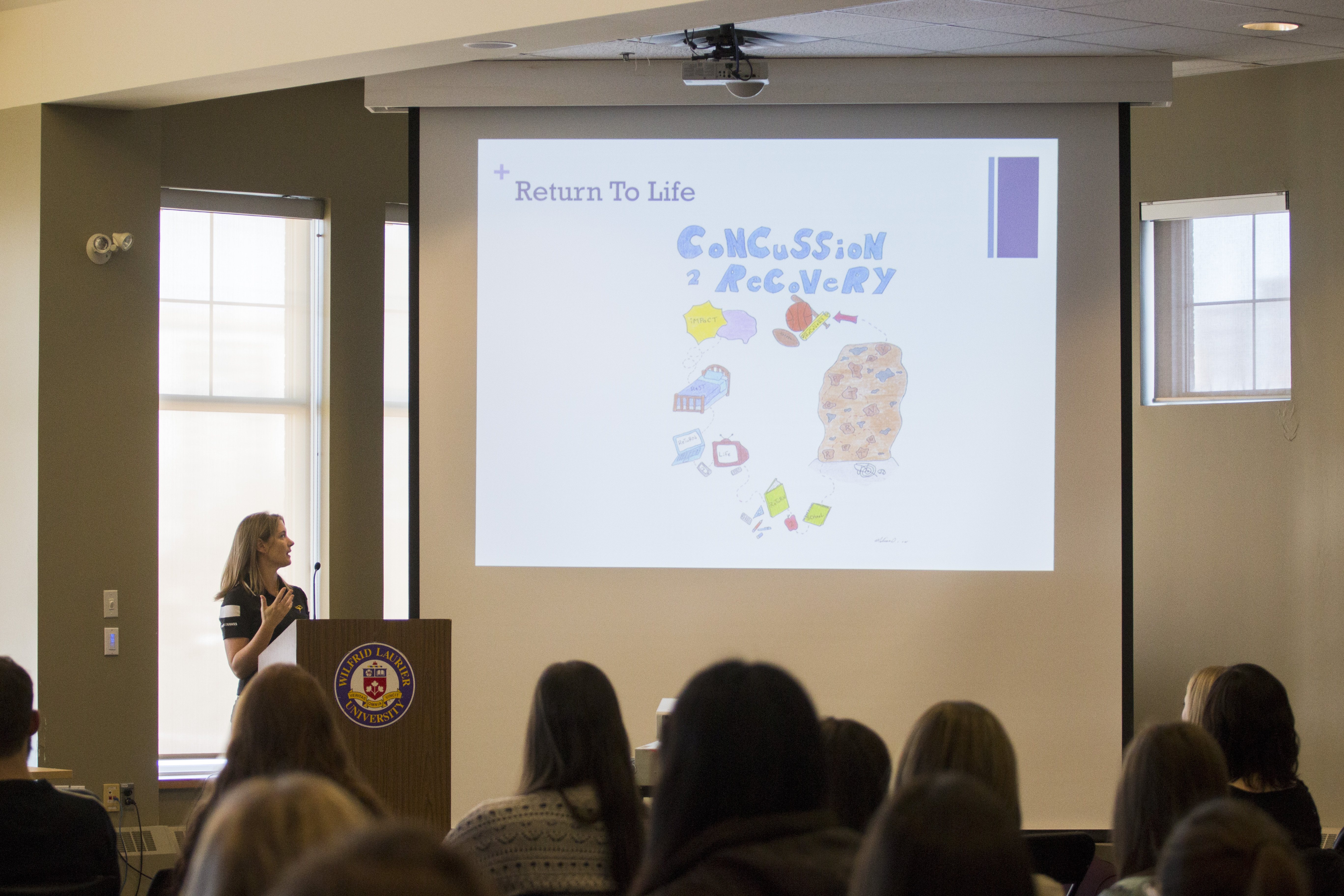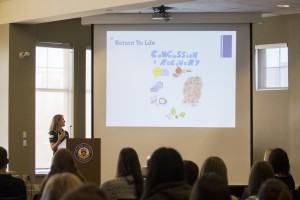Talking brain trauma and concussions

Concussion event brings awareness to brain injuries

The importance of brain injury awareness was discussed on Feb. 28 at a concussion management symposium hosted by Wilfrid Laurier University’s kinesiology and physical education department and Sports Legacy Institute Community Educators. Discussion included information on proper care and resources available in the case of brain trauma.
The event began with a keynote from Ben Fanelli, former Kitchener Rangers hockey player, who suffered severe head injuries during a game in 2009. This incident led to the creation of a program called Headstrong: Fanelli 4 Brain Injury Awareness.
This injury prevented Fanelli from playing hockey for a few years and he ran the risk of never being able to play again.
Nevertheless, he continued to be involved with the team.
“I want to stay involved with this team and I will do everything I can to give myself the chance to play hockey again,” he said.
Fanelli expressed the importance of having a support system and committing to making a full recovery. This is important in many sports, especially hockey, where information about injury prevention must be heavily discussed.
“Honesty and support go hand-in-hand … because I was honest with my team, I created a team of support because they understood what I was going through,” Fanelli said.
Two key moves that were monumental in his recovery were getting back into routine and sacrificing nights out after games, he said.
However, he mentioned guidance is critical to a faster recovery and was the toughest part of his comeback.
According to Fanelli, brain injury recovery is “underfunded, under-researched and isn’t shared,” which inhibits guidance.
“Guidance, for me, has been the toughest part of my comeback … I could have used more guidance,” he explained.
Sharing stories and experiences are helpful in guiding others during recovery.
With his own experience, Fanelli is able to help teammates and others who are going through the same issues.
“I get a lot of people asking me, ‘What do I do? When is this going to get better?’ … there is no specific answer … we do everything we can, as humans, to give ourselves the best chance [at recovery].”
Informative sessions followed the keynote, such as proper medical management, academic supports and services post-concussion, psychological considerations in concussion management, the impact of concussions on visual function and persistence of balance control issues following a concussion.
Amanda Harche, a third-year kinesiology student who attended the symposium, said the event will be effective in raising awareness and “spreading the word.”
“We’re not afraid to say that people have a concussion, now … if we all go and tell one person and they tell one person we’re just hoping it spreads the word about concussion awareness and what to do when you have a concussion,” she said.
“Like Ben said, he could have stopped playing, but he decided to keep going. Even though you have a concussion, you can still return to life and return to play.”


